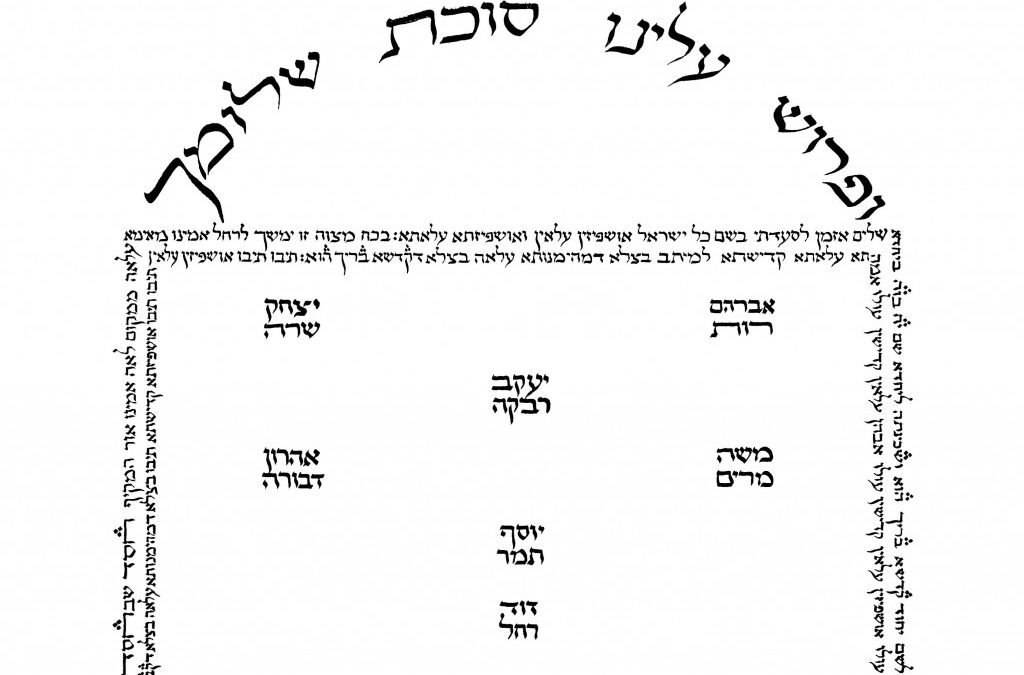During Sukkot it is a mitzvah to provide hospitality to guests, especially the poor. This mitzvah was inspired by Abraham who sat at his open tent to welcome travelers and provide them with food and respite. The tradition of ushpizim (Aramaic for guests) is relatively recent, dating back to the 15th or 16th century and the Kabbalistic tradition. It involves symbolically welcoming our Ancestors; Abraham, Isaac, Jacob, Joseph, Moses, Aaron and David to join in our celebration. It is customary to decorate the sukkah with depictions of our ancestors and blessings for the holiday.
In modern times it has become customary to welcome our matriarchs/female prophets as well – Sarah (Genesis 16:21), Miriam (Exodus 2:1-9; 15:20-21), Deborah (Judges 4-5), Hannah (I Samuel 25), Abigail (I Samuel 25:20), Huldah (II Kings 22:10-20), and Esther (Book of Esther).
Jewish Mysticism, known as Kabbalah, says that each Ancestor not only imparts their unique wisdom at your table, but is also a representation of the sefirot, the mystical aspects of G-d. For example, on the first night we welcome Abraham and/or Sarah – this corresponds to the mystical attribute of Chessed/love. As we meet each of our ancestors, they also guide us on a spiritual journey.
Many Sephardic Jews set aside a decorated chair in the sukkah for the guest of the day. They announce each day that this is the chair of the ushpizim/ot and it remains empty throughout the meal, similar to the Cup or Elijah at Passover.
Get our Free Sukkot Guide for more details about the Ushpizim and for the prayers to appropriately welcome them into your sukkah/sukkah space.
Inviting Guests of Another Faith
The prophet Zachariah envisioned a sukkah tent with all the nations of the world joining. Each of our sukkahs should be an “open tent” that welcomes everyone. At 2 for Seder, we suggest that the best way to get into the spirit of the holiday is by sharing it with 2 friends of another faith safely (or virtually) in your sukkah/sukkah space. By sharing the joy of Sukkot and giving our friends an authentic Jewish experience, we foster understanding and build bridges.
All of our ancestors would think this is truly a mitzvah/good deed.
How does Love and a Safe Sukkah fight anti-Semitism?
While we are apart due to COVID, hatred is not taking a vacation. Providing an authentic, joyous, Jewish experience to a friend who is of another faith creates a counterweight to messages of hate.
Understanding each other brings a greater appreciation for our differences, increasing tolerance and respect.

